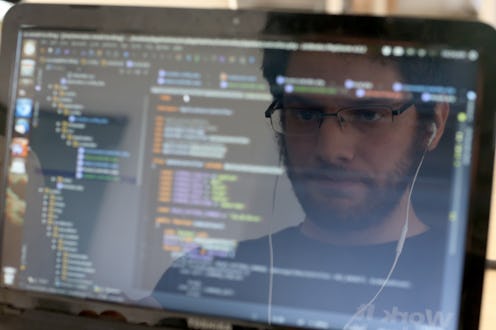News
Why The U.S. Secretly Created A 'Cuban Twitter'
In a move straight out of an international spy thriller, it turns out the U.S. government secretly created a Twitter-like social network in Cuba to stir political unrest and spark regime change. An investigation by the Associated Press revealed a U.S.-funded program created a text-messaging service called ZunZuneo, and gathered users' personal data for future political purposes. The White House confirmed they'd created ZunZuneo Thursday, saying that the program had been debated and approved by Congress.
The purpose of ZunZuneo, apparently, was to elude the communist country's notorious censorship and Internet filters. First, the service started out by providing harmless, non-controversial information to the masses on topics like sports or music. Thousands of subscribers signed up for ZunZuneo (which is slang for a Cuban hummingbird's song.)
After rounding up dedicated users, the next step was to introduce political content that would organize "smart mobs" and potentially prompt a social uprising. According to documents obtained by the AP, the content could trigger gatherings to “renegotiate the balance of power between the state and society.”
Secret shell companies in Spain and the Cayman Islands served as the front for the plan, and finances came through international banks. The American government's role came in through the United States Agency for International Development, who was reportedly behind the Twitter project — the group is best known for involvement in managing funds for humanitarian aid.
If conspiracy theories haven't abounded yet, they're sure to be sparked by the USAID's claims that it isn't involved in any secret plans. Under U.S. law, covert operations need written authorization by the president and congressional notification, so it's still unclear whether the Cuban social media operation was legal.
Interviews and documents from the AP indicated the USAID and its contractors covered their tracks to hide any involvement from Washington. One memo read,"There will be absolutely no mention of United States government involvement... This is absolutely crucial for the long-term success of the service and to ensure the success of the mission."
ZunZuneo was set up in 2009, allowing Cubans to communicate free of charge, but it mysteriously disappeared in 2012 after the USAID said funds ran out. In a statement, the agency said its work was consistent with U.S. law and, the organization was "proud of its work in Cuba to provide basic humanitarian assistance, promote human rights and fundamental freedoms, and to help information flow more freely to the Cuban people".
Some in Washinton, however, think otherwise. Sen. Patrick Leahy, chairman of the Appropriations Committee's State Department and foreign operations subcommittee, told the Associated Press "the clandestine nature of the program" wasn't disclosed to the committee and it served as a risk to young Cuban users who had no idea of U.S involvement.
